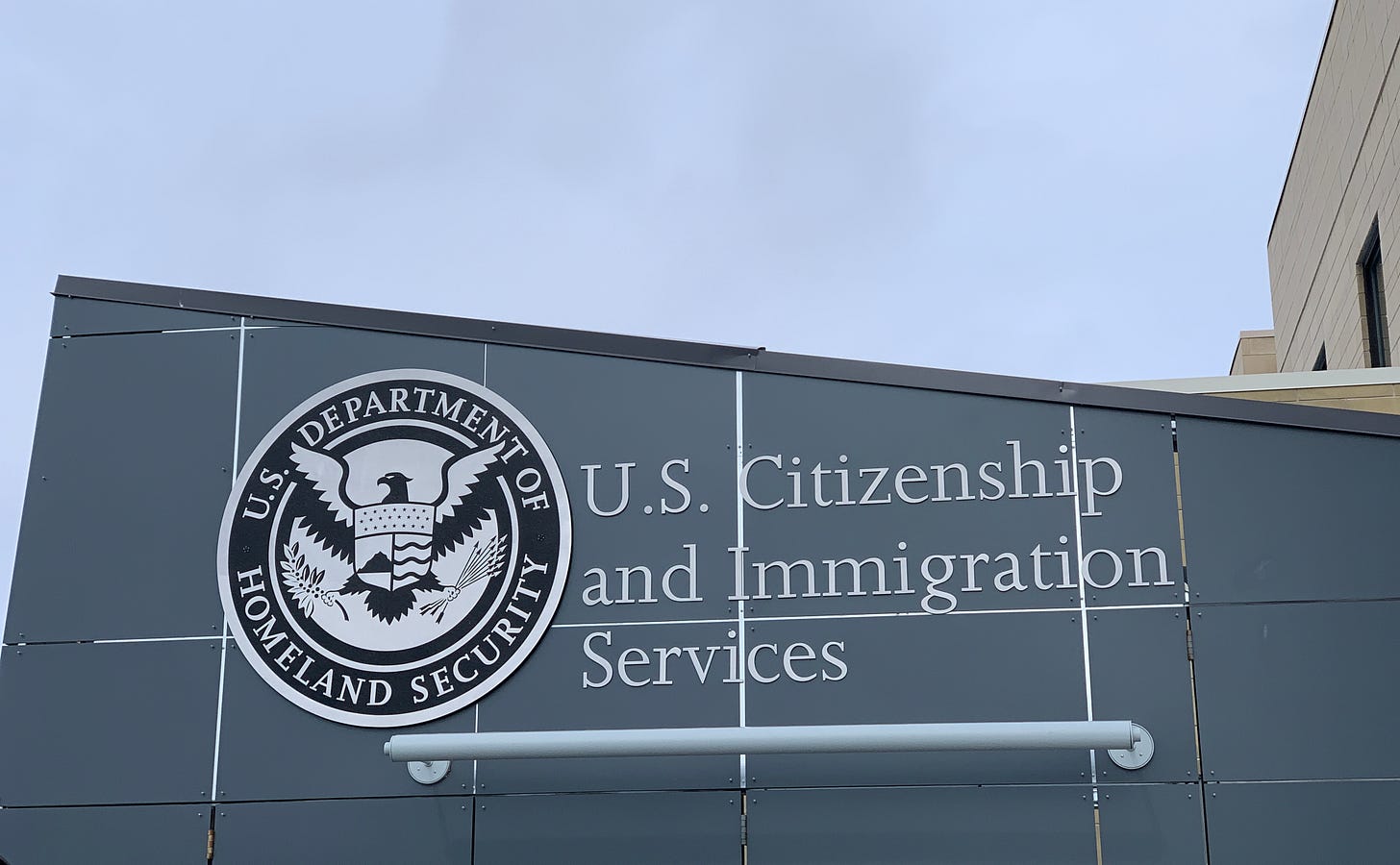Georgetown Prepares for Trump's Second-Term Immigration Catastrophe
A student's reflections on the potentially seismic changes to the immigration infrastructure in the next Trump term.
What will the next four years look like? On the one hand, there is a silver lining for potentially lower gas prices, but for many, the future looks bleak with upcoming changes in immigration policies.
Georgetown student Laura Logan, who has dedicated much of her high school and college career to helping refugees and immigrants in Minnesota and Washington, D.C., provides insights on the future of immigration under the Trump Administration. Logan is an International Political Economy major who started volunteering to help refugees in Minneapolis. She took a course on the immigrant experience in the US, which led to her junior year work with the Lutheran Social Services (LSS). What started as a summer job has now become her real passion. Back home, Logan worked full-time for LSS and is now involved with Georgetown’s No Lost Generation (NLG) during the academic year, which aims to raise awareness of the refugee crisis here at GU.
At the Lutheran Social Services, Logan personally worked with Afghan, Somali, and Dominican refugees. She recalls that the most challenging part of the job was watching the hardship of Afghan men trying to reunite with their families back home through the American military SIV program.
Once the war on Ukraine began in 2014, a new influx of refugees came to the United States from Eastern Europe. In Minnesota, Logan’s work involved Temporary Protection Status (TPS), U.S. Department of Homeland Security program, which offers short-term asylum. TPS, Green Cards, and Employment Authorization Document (EAD) are programs in jeopardy under the new administration. During his first term, Trump reduced the number of green cards issued to people abroad by at least 418,453 and non-immigrant visas by at least 11,178,668, decreasing legal immigration rather than illegal.
Logan emphasizes, “Many denials are simply due to insufficient or miswritten information. These applications are lengthy, use confusing language, and cultural barriers exist. Some applications have been sent back because the birthday was listed in reverse (in many other cultures), or name ordering is confused (first, middle, last name).”
Although not the most stable VISA type, TPS is essential for people from countries, especially those above, that are at war or have strict persecution of specific groups. Even though asylum aid is nowhere near finished, the future administration only adds fuel to the fire.
At Georgetown, most of Logan’s work was based on the No Lost Generation’s three pillars: advocacy, outreach, and education. NLG routinely hosts speaker events as a community outreach effort. They recently hosted a letter-writing workshop (example here), writing to senators and Congress about policies like the Afghan Adjustment Act. They also created an informational slide presentation on the Asylum Seekers Work Authorization Act. Logan said that letter writing is a good opportunity for college students to get involved, given our limited direct influence.
One way to gain knowledge and make a difference is through education about asylum and refugee law through events such as the one NLG hosted featuring Andrew Schoenholt, a Georgetown Law professor who oversees an asylum law clinic. The NLG also partners with the Immigrant and Refugee Outreach Committee to allow students to do online resume reviews, English tutoring, and informal English conversations. “One of the biggest ways to raise awareness is social media at the moment. We have been prioritizing advocacy, outreach, and education. Many people aren’t aware of the specific policies or details excluded from bigger headlines.”
When asked about future obstacles under the new, historically conservative Trump administration, Logan answered: “There are going to be many new challenges.” One could be attributed to the newly appointed ‘Border czar,’ Tom Homan.” In charge of the northern and southern borders, he plans to enact family separation and deport Deferred Action for Childhood Arrivals (DACA) recipes. Concerned, Logan highlights that “TPS recipients, DACA, and naturalized citizens are groups set to have their status expire in 2025 and are most likely not going to be renewed under this new administration.”
If we recall, when Trump campaigned for president in 2015, he promised: ‘I will build a great, great wall on our southern border. And I will have Mexico pay for that wall. Mark my words.’ There was never a wall built, but there were 337,287 removals of unauthorized immigrants carried out by CBP and ICE in fiscal 2018, a 17% increase from the previous year. Although numbers were lower than under Obama, necessary differences to consider going into the 2025 term are a majority in the House of Representatives, the Senate, and a conservative-leaning U.S. Supreme Court, all in addition to a Republican president. There is no telling what safeguards will protect those at risk and the economic catastrophe, an estimated cost of $967.9 billion over the next ten years, that can come with mass deportation.
How can we overcome these challenges we might face in the future? Not all hope is lost. Students like Laura Logan will continue to advocate, and hopefully, the forthcoming obstacles will fuel those fighting for advocacy and marginalized groups instead of discouraging them. Now, more than ever, it is essential that citizens continue to educate themselves and others about threats to immigration rights and protections. These issues directly and inadvertently affect everyone in this country, so we should donate and spread information whenever possible.





